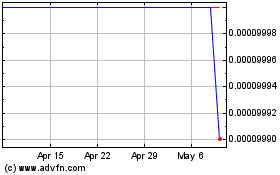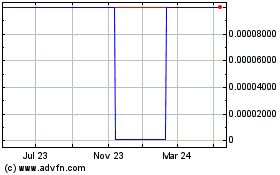Rosetta Genomics Announces Publication of Data Demonstrating Differentiation of Adrenocortical Carcinomas from Adenomas by mi...
November 04 2014 - 8:38AM
Business Wire
Study shows microRNAs accurately identify
malignant adrenocortical tumors with equal efficiency to
histopathologic Weiss system
Rosetta Genomics Ltd. (NASDAQ:ROSG), a leading developer and
provider of microRNA-based molecular diagnostics, announces the
publication of data relating to the Company’s microRNA platform in
the online edition of peer-reviewed journal, “Applied
Immunohistochemistry and Molecular Morphology.” The article
entitled, “Specific MicroRNAs Differentiate Adrenocortical Adenomas
from Carcinomas and Correlate with Weiss Histopathologic System,”
highlights the ability of microRNA profiles to differentiate
adrenocortical carcinomas from adenomas with very good correlation
with the histologic Weiss system for identifying malignancy in
adrenocortical tumors (ACTs). This study is part of a collaborative
project between Rosetta Genomics and Prof. Meora Feinmesser, M.D.,
Head of the Institute of Pathology at the Rabin Medical Center in
Israel.
The study blindly evaluated 46 primary and two recurrent ACTs
for the Weiss criteria. High-quality RNA was extracted, and
microRNA expression was evaluated with microarrays and quantitative
reverse-transcriptase polymerase chain reaction. On microarray
analysis, over a dozen microRNAs were differentially expressed in
carcinomas compared with adenomas. Up-regulation of miR-503 was
shown to be the best single discriminator of malignancy. The
combination of miR-34a and miR-497 under-expression discriminated
carcinomas from adenomas with 100% sensitivity and 96%
specificity.
The study concluded that microRNA expression can accurately
identify malignant ACTs with equal efficiency to the Weiss system.
microRNA analysis may have added value in tumors with borderline
features that are difficult to interpret histopathologically.
Commenting on the study, Prof. Feinmesser noted, "The results of
the study emphasize the close correlation between molecular
pathology and time proven histopathologic analysis. In borderline
and difficult cases the microRNA profile may contribute to accurate
diagnosis and patient treatment decisions."
“We are pleased to have published studies, such as this one,
that confirm the accuracy of microRNA profiling to differentiate
malignant from benign tumors of the adrenal gland and show
correlation to the Weiss system, which is the current gold standard
in histopathology. This accurate differentiation is important since
most adrenal tumors are benign, and identifying those that are
malignant is critical,” noted Kenneth A. Berlin, President and
Chief Executive Officer of Rosetta Genomics. “Importantly, this
study continues to further elucidate the key role microRNAs play in
regulating gene expression, particularly those strongly associated
with cancer development. With over 50 peer-reviewed articles
related to our microRNA platform technology, we continue to build
our leadership position in the discovery and development of
microRNA-based cancer diagnostics. In addition, a test that can
accurately identify malignant ACTs would be a nice complement to
our other efforts in endocrinology, oncology and pathology such as
our thyroid assay for indeterminate FNAs which we aim to launch in
the third quarter of next year.”
About Adrenocortical Carcinomas
A rare cancer that forms in the outer layer of tissue of the
adrenal gland (a small organ on top of each kidney that makes
steroid hormones, adrenaline, and noradrenaline to control heart
rate, blood pressure, and other body functions). According to
Cancer.net, there are approximately 300 adults in the United States
diagnosed each year with adrenal cortical cancer. This type of
cancer is much less common than an adrenal adenoma, a benign tumor
that is more common for middle-age and older adults.
About Rosetta Genomics
Founded in 2000, Rosetta’s integrative research platform
combining bioinformatics and state-of- the-art laboratory processes
has led to the discovery of hundreds of biologically validated
novel human microRNAs. Building on its strong patent position and
proprietary platform technologies, Rosetta is working on the
application of these technologies in the development and
commercialization of a full range of microRNA-based diagnostic
tools and therapeutics. Rosetta currently commercializes a full
range of microRNA-based molecular diagnostics. Rosetta’s cancer
testing services are commercially available through its
Philadelphia-based CAP-accredited, CLIA-certified lab. For more
information please visit www.rosettagenomics.com.
Forward-Looking Statement Disclaimer
Various statements in this release concerning Rosetta’s future
expectations, plans and prospects, including without limitation,
statements relating to the differentiation of adrenocortical
carcinomas from adenomas, the performance of Rosetta's Cancer
testing services and the added value of microRNA analysis to in
tumors with borderline features, constitute forward-looking
statements for the purposes of the safe harbor provisions under The
Private Securities Litigation Reform Act of 1995. Actual results
may differ materially from those indicated by these forward-looking
statements as a result of various important factors, including
those risks more fully discussed in the "Risk Factors" section of
Rosetta’s Annual Report on Form 20-F for the year ended December
31, 2013 as filed with the SEC. In addition, any
forward-looking statements represent Rosetta’s views only as of the
date of this release and should not be relied upon as representing
its views as of any subsequent date. Rosetta does not assume any
obligation to update any forward-looking statements unless required
by law.
Rosetta Genomics:Rosetta GenomicsKen Berlin, President
&
CEO609-419-9003investors@rosettagenomics.comorInvestors:LHAAnne
Marie Fields, 212-838-3777afields@lhai.comorBruce Voss,
310-691-7100bvoss@lhai.com
Rosetta Genomics (CE) (USOTC:ROSGQ)
Historical Stock Chart
From Mar 2024 to Apr 2024

Rosetta Genomics (CE) (USOTC:ROSGQ)
Historical Stock Chart
From Apr 2023 to Apr 2024
